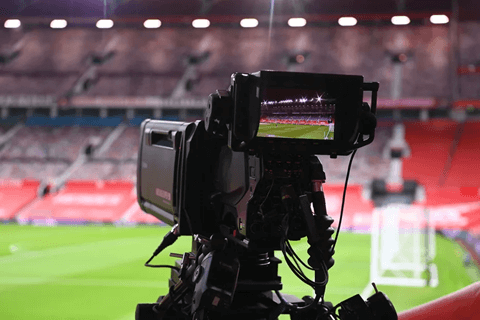It’s Saturday, 3pm. You’ve been looking forward to watching the team you support play all week, so you turn on the TV looking for live coverage of the game, but it’s not there. No football is being shown live at all. Weird, right? But why is this the case? A rule dating back to the 1960’s.
In the 1960’s, Burnley FC chairman Bob Lord successfully convinced fellow Football League members that televising matches on a Saturday afternoon would negatively impact attendances of non-televised football games, resulting in a loss of income from ticket sales. As a result, it was decided no matches (even non-domestic games) were to be shown live on Saturdays between 2.45pm and 5.15pm.
In recent weeks, the EFL has strongly hinted at being open to ending the blackout when its current broadcasting deal with Sky ends in 2024, amid fierce interest from other broadcasters interested in taking over the television rights. With the modernisation of live sports coverage and the EFL television rights deal being expected to double in value, it appears that a bidding war and culture change is on its way in English football. And with cultural shifts comes new opportunities, new players in the market and innovative broadcasting methods, something which MTM predicts could have a wide impact not just on football, but the whole world of sport.
A case for deepening football fandom
Fans for many years have expressed their bemusement and apathy towards the blackout, which seemingly has barely impacted match attendances. Tickets are limited for each game, so for the majority of fans unable to get their hands on one, they rely on live broadcast TV. To fans’ dismay if the match is scheduled within the blackout slot, often they are left with no way to watch their club games. Fans’ outrage towards the blackout made notable headlines in 2021, following Manchester United’s re-signing of Cristiano Ronaldo. Many fans called for the removal of the blackout, which denied them the chance to watch Ronaldo’s highly anticipated return for the club, as their game against Newcastle United took place during a 3pm game slot.
For fans who want the rule lifted there have been positive developments. The English Football League (EFL), who run the 2nd, 3rd and 4th tier of English football, are seriously considering lifting the blackout ahead of the 2024/25 season when their partnership with Sky Sports expires. The EFL claim they have evidence that fans who attend matchdays and those who broadcast from home are two different sets of people, with the majority of fans who opt to broadcast located over 25 miles away from their home stadium. This unique segment of fans relies on TV footage to engage with their favourite clubs and would be unlikely to impact ticket revenues.
Positives of ending the blackout could include better access for fans to their favourite clubs, helping to strengthen their levels of engagement. For clubs this may result in additional streaming revenue, something which is vital for smaller EFL clubs, who already struggle to compete with football’s elite. Clubs could also indirectly benefit from the ripple effects of increased viewership, including more increased merchandise sales, alongside sponsor and licensing opportunities.
A tried and tested model?
Often, the comparison to German football is used as an opening argument for those in favour of scrapping the 3pm blackout. In Germany, every Bundesliga game is shown live domestically, with attendances not suffering for it.
However, there are some key differences between the German and English football leagues. Bundesliga kick off times are spread across a typical weekend, typically being played at different times to the other major German leagues. In contrast, in England, almost all matches across the footballing pyramid kick off a 3pm at a Saturday, a tradition engrained in the footballing culture, going all the way down to the lowest levels of non-league football. The English football pyramid is unique, being far deeper and stronger than Germany’s, or any other country in Europe for that matter. This adds huge uncertainty around what a removal of the 3pm blackout might look like. The biggest concern is that increased access to more televised Premier League games could be harmful for the EFL, with a risk that more fans would opt to tune into higher league matches. This could be both detrimental to EFL club engagement and could impact ticket revenues.
With no clear roadmap, it’s no surprise that there is hesitation for change, particularly when the impact could be crippling for many EFL clubs and widen the financial inequality compared to EPL teams. At the same time, there is no definitive proof in the opposite direction – that rising TV audiences means falling matchday attendances. So a stalemate remains for the time being.
But what does the future hold?
If the EFL goes ahead with the blackout, it’s certain that the Premier League will be watching very closely. The Premier League deal with Sky Sports, BT and Amazon Prime expires in 2025, exactly a year after the EFL deal ends. Apple are reported to be interested in the Premier League rights, having recently come off signing off a 10-year deal to broadcast the MLS in 2023 for approximately $250m a year.
With the perfect storm of factors – the current EFL/EPL deal ending, Apple swooping in, the EFL offering a potential test run and fans discontent at the blackout – it’s very possible that fans may be able to watch their favourite clubs at 3pm on a Saturday from the comfort of their own home in the not too distant future.
